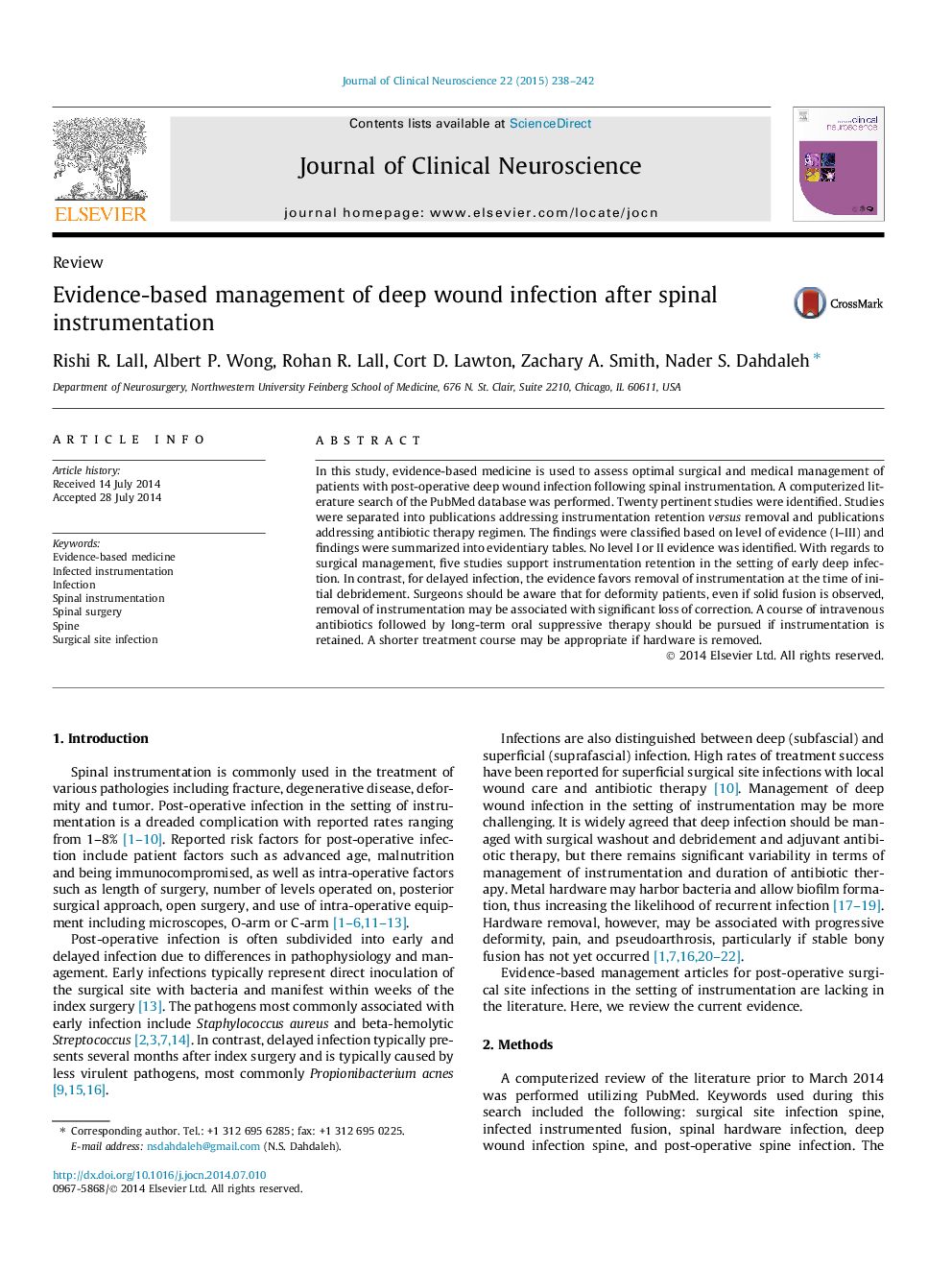| Article ID | Journal | Published Year | Pages | File Type |
|---|---|---|---|---|
| 3059541 | Journal of Clinical Neuroscience | 2015 | 5 Pages |
In this study, evidence-based medicine is used to assess optimal surgical and medical management of patients with post-operative deep wound infection following spinal instrumentation. A computerized literature search of the PubMed database was performed. Twenty pertinent studies were identified. Studies were separated into publications addressing instrumentation retention versus removal and publications addressing antibiotic therapy regimen. The findings were classified based on level of evidence (I–III) and findings were summarized into evidentiary tables. No level I or II evidence was identified. With regards to surgical management, five studies support instrumentation retention in the setting of early deep infection. In contrast, for delayed infection, the evidence favors removal of instrumentation at the time of initial debridement. Surgeons should be aware that for deformity patients, even if solid fusion is observed, removal of instrumentation may be associated with significant loss of correction. A course of intravenous antibiotics followed by long-term oral suppressive therapy should be pursued if instrumentation is retained. A shorter treatment course may be appropriate if hardware is removed.
